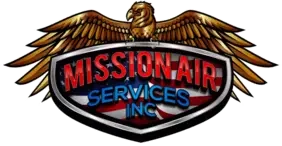There’s nothing quite like the moment you walk into your home on a hot Lakeland afternoon, expecting a wave of cool, refreshing air to greet you—only to be met with stifling heat. You immediately check the thermostat, press a few buttons, and wait. But nothing happens. Your air conditioner won’t turn on, and the dread sets in. What could be wrong?
Living in Plant City, FL, where the temperature can rise quickly, having a functional air conditioner isn’t just a luxury—it’s essential. Whether you’re a long-time resident or a newcomer to the Sunshine State, understanding why your AC won’t turn on is crucial. In this blog, we’ll explore the common reasons behind this issue, provide educational insights, and offer practical tips to get your AC up and running again.
Common Reasons Your AC Won’t Turn On
When your AC fails to start, there are several potential culprits. Some of these issues are simple fixes you can handle on your own, while others require professional assistance. Below, we break down the most common reasons for an AC that won’t turn on.
Power Issues
Sometimes, the solution is as simple as checking the power supply. If your AC isn’t turning on, start by verifying that it’s receiving power.
- Tripped Circuit Breaker: Florida’s frequent thunderstorms can cause power surges, leading to a tripped circuit breaker. Head to your electrical panel and check if the breaker for your AC has tripped. If it has, reset it by flipping the switch. However, if the breaker trips repeatedly, this could indicate a more serious electrical issue that requires professional attention.
- Blown Fuse: Your AC system may have a fuse located in the disconnect box near the outdoor unit. A blown fuse can prevent your AC from turning on. If you’re comfortable checking the fuse, you can replace it yourself. However, if you’re unsure, it’s best to call a professional.
- Loose Wiring: Over time, vibrations can cause wiring connections to loosen, disrupting power to your AC unit. Unless you’re experienced with electrical work, it’s advisable to contact an HVAC technician to inspect and tighten any loose connections.
Thermostat Issues
Your thermostat serves as the control center for your AC system. If it’s not working correctly, your AC won’t turn on, regardless of how well the rest of the system is functioning.
- Incorrect Settings: Ensure that your thermostat is set to “cool” mode and that the temperature is set lower than the current room temperature. Sometimes, a simple mistake in settings can be the reason your AC won’t start.
- Dead Batteries: If your thermostat is battery-operated, check the batteries. Dead or low batteries can cause your thermostat to malfunction, leading to an unresponsive AC unit.
- Faulty Thermostat: Thermostats, like any electronic device, can fail over time. If your thermostat is old or showing signs of malfunction, it might need to be replaced.
Clogged Air Filter
Your air filter plays a critical role in your AC system by trapping dust, debris, and allergens. However, if the filter becomes too clogged, it can obstruct airflow and cause the system to overheat, leading to a shutdown.
- Restricted Airflow: A clogged filter reduces airflow, making your AC work harder to cool your home. This increased strain can lead to overheating, which triggers the system to shut down as a safety measure.
- Frozen Evaporator Coils: In some cases, a dirty filter can cause the evaporator coils to freeze. When the coils are frozen, your AC won’t be able to function properly, and the system may shut down completely.
To avoid these issues, it’s essential to change your air filter regularly. In Florida’s hot and humid climate, it’s recommended to check and replace the filter every 1-3 months.
Refrigerant Leak
Refrigerant is the lifeblood of your AC system, responsible for cooling the air that circulates throughout your home. If there’s a refrigerant leak, your AC won’t be able to cool effectively, and it may not turn on at all.
- Low Refrigerant Levels: When refrigerant levels are low due to a leak, the pressure in your AC system drops, causing it to malfunction. Low refrigerant can also lead to frozen coils, further exacerbating the issue.
- Hissing or Bubbling Sounds: If you hear hissing or bubbling noises near your AC unit, it could indicate a refrigerant leak. This is a serious problem that requires immediate attention from a licensed HVAC technician.
Refrigerant leaks not only affect your AC’s performance but can also be harmful to the environment. If you suspect a refrigerant leak, contact a professional to diagnose and repair the issue.
Faulty Capacitor
The capacitor is a small, yet vital, component that helps start the motor in your AC system. Without a functioning capacitor, your AC won’t turn on.
- Burned-Out Capacitor: Capacitors can wear out over time, especially in areas with high temperatures like Lakeland, FL. If the capacitor burns out, the motor won’t receive the necessary electrical charge to start, resulting in a non-functional AC unit.
- Clicking Sound: If you hear a clicking sound when your AC tries to start, it could be a sign that the capacitor is failing. Replacing a capacitor is a task best left to professionals, as it involves working with electrical components.
Dirty Condenser Coils
The outdoor unit of your AC system contains the condenser coils, which release the heat removed from your home. Over time, these coils can become dirty and covered with debris, reducing their efficiency.
- Overheating: When the condenser coils are dirty, the unit has to work harder to expel heat, leading to overheating. If the system overheats, it may shut down to prevent damage.
- Reduced Efficiency: Dirty coils can also lead to reduced cooling efficiency, causing the system to struggle to maintain the desired temperature. This added strain can eventually prevent the system from turning on.
Regular maintenance, including cleaning the condenser coils, can prevent these issues and keep your AC running smoothly.
Drain Line Issues
Your AC system produces condensation as it cools the air. This moisture is drained through a pipe called the condensate drain line. If this line becomes clogged, it can cause water to back up into the system, leading to a shutdown.
- Clogged Drain Line: In Florida’s humid climate, algae and mold can quickly build up in the drain line, causing a blockage. When the drain line is clogged, the system’s safety switch may activate to prevent water damage, shutting down the AC.
- Water Leaks: If you notice water pooling around your indoor unit, it could be a sign of a clogged drain line. This issue needs to be addressed promptly to prevent further damage.
Clearing a clogged drain line can be done using a wet/dry vacuum, but if the clog is severe, it’s best to call a professional.
Compressor Failure
The compressor is the heart of your AC system, responsible for circulating refrigerant between the indoor and outdoor units. If the compressor fails, your AC won’t turn on.
- Overheating: Compressors can overheat due to various factors, including dirty coils, low refrigerant levels, or electrical issues. Overheating can cause the compressor to shut down or fail completely.
- Aging System: If your AC is older, the compressor may simply be nearing the end of its lifespan. In this case, replacing the compressor or even the entire system may be necessary.
Compressor failure is one of the more serious AC issues and often requires professional diagnosis and repair.
Preventive Measures to Avoid AC Problems
Preventing AC issues before they start is always better than dealing with a malfunction. Here are some preventive measures you can take to keep your AC running smoothly:
- Regular Maintenance: Schedule annual maintenance with a professional HVAC technician. Regular inspections can catch potential issues before they become major problems.
- Change Filters: Replace your air filters regularly to ensure proper airflow and prevent the system from overheating.
- Keep the Area Clean: Ensure that the area around your outdoor unit is free from debris, plants, and other obstructions. This helps maintain proper airflow and prevents overheating.
- Monitor Thermostat Settings: Check your thermostat settings regularly to ensure they are correct. This simple step can prevent unnecessary strain on your system.
- Address Issues Early: If you notice any unusual sounds, odors, or performance issues, address them immediately. Ignoring small problems can lead to more significant and costly repairs down the line.
For AC Services in Plant City, FL, Contact Mission Air Services Today
If your AC won’t turn on, don’t wait until the Florida heat becomes unbearable. At Mission Air Services, we understand how vital a functioning air conditioner is for your comfort and well-being. Our team of experienced HVAC technicians is ready to diagnose and repair any issues with your AC, ensuring your home stays cool and comfortable.
We pride ourselves on delivering prompt, professional, and reliable service. Whether it’s a simple fix or a more complex problem, you can trust Mission Air Services to get the job done right. Don’t let a malfunctioning AC disrupt your day—contact us today for expert AC services in Plant City, FL.

